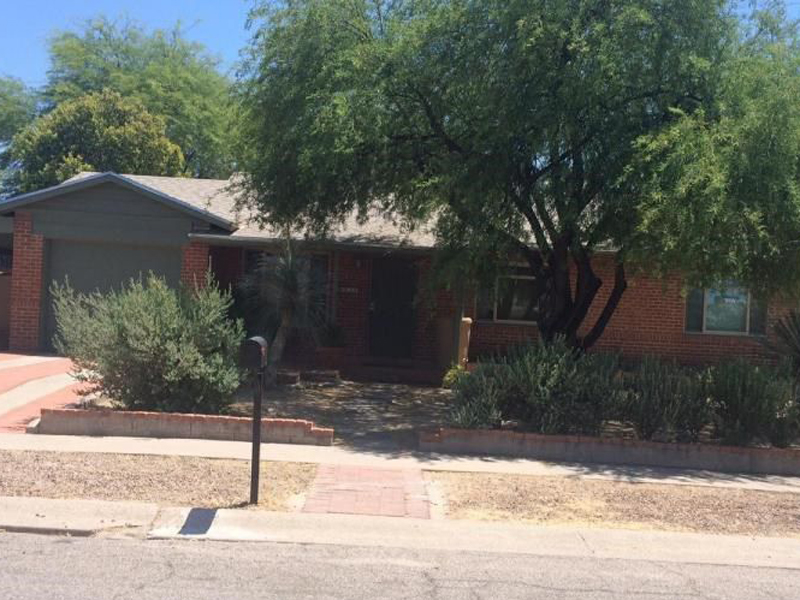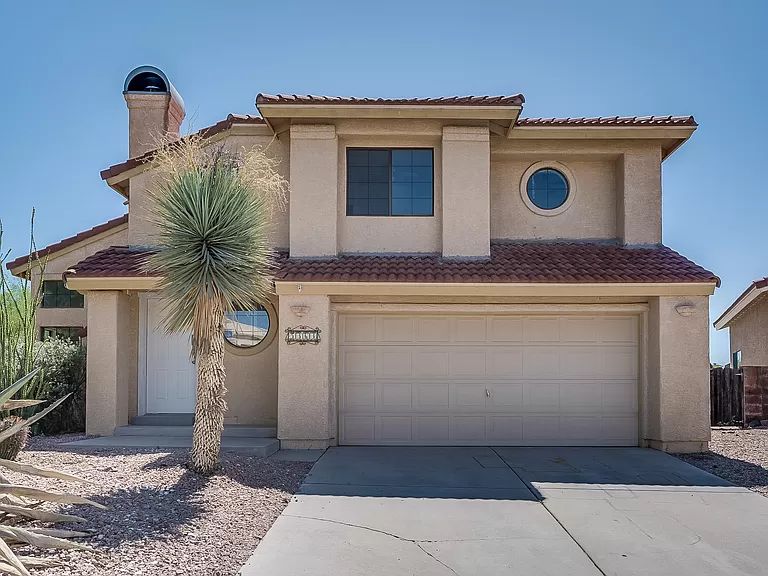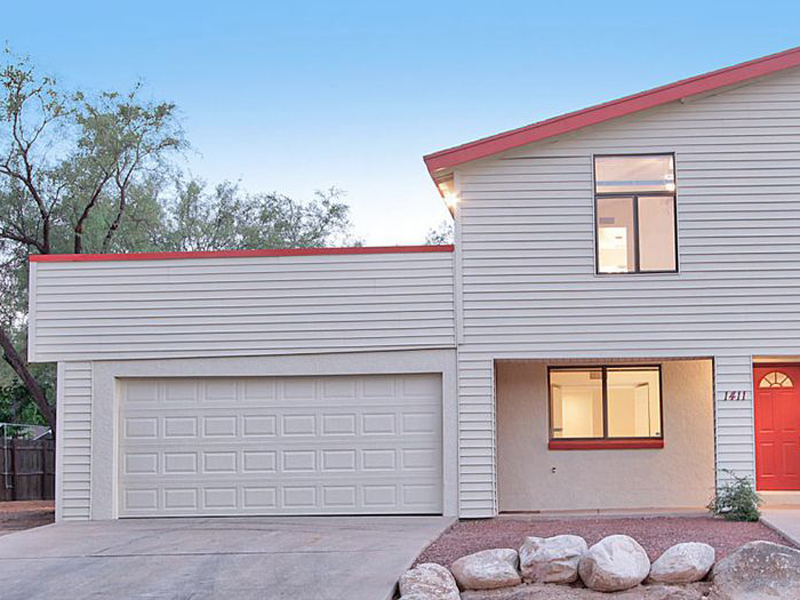Garage Door Breakdown - Exactly How to Get It Working Once More
Is Your Garage Door Stuck? Here's What to Do Very first
When your garage door won't open, begin with these important security checks before attempting any kind of fixings. First, guarantee nobody is standing near the door and that automobiles are free from the opening. Search for evident indications of damages like broken panels, bent tracks, or hanging wires. If you see a snapped spring or badly damaged parts, stop immediately and call a professional—-- these repair work need specialized devices and know-how to handle safely.

Inspect These 6 Things Prior To Calling a Specialist
Prior to assuming you require costly fixings, go through this fast diagnostic list that solves most garage door problems:
-
Source of power: Verify the opener is plugged in and the electrical outlet is working
-
Remote batteries: Change dead batteries in your remote control
-
Manual lock: Check if someone accidentally engaged the hand-operated lock
-
Blockages: Try to find particles blocking the door's path or sensing units
-
Emergency situation launch: Make certain the red emergency situation cable hasn't been drawn
-
Breaker: Confirm the garage circuit hasn't stumbled
These straightforward checks deal with approximately 70% of garage door problems without needing expert intervention.
10 Common Factors Your Garage Door Won't Open Up
Understanding why your garage door opener isn't working aids you choose the ideal option. Here are one of the most regular causes homeowners experience:
Dead remote batteries stand for the most basic repair—-- when batteries die, the remote can't send signals to the opener. Power outages or tripped breakers cut electrical energy to the motor. Damaged springs avoid the door from raising correctly and call for prompt specialist interest. Sensing unit misalignment causes security systems to block door procedure. Track obstructions stop rollers from moving smoothly. Electric motor overload triggers automated shutoffs when the opener finds resistance. Restriction switch problems confuse the opener regarding door placement. Cord damages interferes with the training system. Weather-related concerns influence door movement during extreme temperatures. Component wear from age slowly decreases system efficiency.
Issue # 1: Dead Remote Batteries
When your wall button works but your remote doesn't, dead batteries are normally the wrongdoer. Many garage door remotes utilize either 3-volt lithium or 12-volt alkaline batteries. Eliminate the back cover of your remote and inspect the battery type. Change with fresh batteries and examine the remote. If it still doesn't work, you might require to reprogram it to your opener. Consult your opener's handbook for details reprogramming directions, as the procedure varies by maker.
Problem # 2: Power Supply Issues
Garage door power troubles commonly originate from loosened connections or stumbled circuits. Check that the opener is strongly linked into its electrical outlet—-- resonance can loosen links in time. Examine the outlet with one more tool to verify it's functioning. Analyze your home's breaker box for tripped circuits, especially if you've experienced tornados or power variations. GFCI electrical outlets may have tripped and require resetting. If the opener has power but will not respond, the concern likely lies in other places in the system.
Problem # 3: Broken or Damaged Springs
Damaged garage door springs are amongst the most unsafe parts to take care of. If you hear a loud bang from your garage or notice the door really feels exceptionally hefty when attempting to lift by hand, a spring has most likely broken. Torsion springs run horizontally above the door, while expansion springs remain on either side. Never ever try spring repair work yourself—-- these components keep incredible tension that can cause major injury or fatality. Expert replacement normally costs $150-$300 but guarantees your safety and security.
Problem # 4: Blocked Safety Sensing Units
Modern garage doors feature safety sensors that prevent closure when things are identified. These sensors can quit the door from opening if they're dirty, misaligned, or obstructed by debris. Clean sensor lenses with a soft towel and ensure nothing obstructs the undetectable beam in between them. Inspect that sensors are appropriately straightened—-- many have sign lights that show connection standing. Sensor troubles typically resolve with basic cleansing and change.
Issue # 5: Track Obstructions or Damage
Garage door tracks overview rollers as the door goes up and down. Dirt, particles, old grease, or little things can jam the system. Examine tracks aesthetically and get rid of any blockages with a brush or cloth. Search for dents, bends, or warping that might hamper smooth operation. Minor track modifications are possible for convenient house owners, however considerable damages requires professional fixing to stop more issues or safety and security dangers.
Problem # 6: Garage Door Opener Electric Motor Issues
When the garage door motor runs but the door doesn't relocate, a number of concerns could be accountable. The electric motor might be overwhelmed and turning off as a safety measure. Equipment wear, especially in older devices, can prevent correct operation. Chain or belt drive issues affect power transmission. If you hear uncommon grinding, clicking, or humming audios, quit making use of the opener immediately. Motor repairs frequently cost more than substitute, especially for systems over one decade old.
Step-by-Step DIY Troubleshooting Overview
Follow this methodical approach to garage door fixing while prioritizing safety throughout the process:
Step 1: Evaluate the wall button first. If it functions however the remote does not, focus on remote concerns. If neither jobs, check power supply.
Action 2: Check out the manual release cable. If it's been drawn, the opener is disengaged from the door. Push the trolley back to reconnect.
Action 3: By hand evaluate the door by disengaging the opener and trying to raise the door by hand. It should relocate smoothly and stay in place when half-open.
Tip 4: Examine noticeable parts for damage, paying special focus to springtimes, cords, and tracks.
Tip 5: Examine all safety and security functions including sensing units, restriction buttons, and auto-reverse functions.
Action 6: Test various controls (remote, wall surface switch, keypad) to isolate the problem source.
Always put on safety glasses and job gloves when executing examinations, and never effort repair services on springs or high-tension components.
When to Call a Specialist vs. DIY Solutions

Knowing when to call a garage door professional versus attempting DIY repair services protects both your security and your purse. Handle these concerns on your own: dead remote batteries, power supply issues, minor track cleansing, sensor cleansing and placement, and standard lubrication.
Never ever try these fixings on your own: springtime substitute or change, cord repair work, significant track adjustment, electrical wiring concerns, opener electric motor substitute, or any kind of fixing involving high-tension components. Specialist specialists have specialized tools, training, and insurance to garage door safety tips for families with kids take care of harmful repairs securely.
Think about repair costs versus replacement costs, especially for doors over 15 years old. Modern garage doors provide far better safety features, power performance, and reliability than older designs.
Emergency Situation Garage Door Solutions
When you're stuck to a garage door that won't open up and need instant gain access to, follow these emergency treatments:
Guidebook Procedure: Draw the red emergency launch cord to disengage the opener. This allows manual operation yet requires proper strategy to avoid injury. Lift the door gradually and evenly, using leg muscles instead of your back. A lot of household doors evaluate 100-150 extra pounds, making them convenient for most grownups.
Short-lived Fixes: If the door opens by hand however will not keep up, prop it open with sawhorses or clamps—-- never utilize your body or cars as assistances. For doors that won't shut totally, make sure the opening is protected if you have to leave.
Emergency situation Solution: Numerous garage door companies offer 24/7 emergency service for circumstances including safety and security problems, entraped cars, or complete system failures. While extra costly than regular service phone calls, emergency situation repair work offer prompt solutions when needed most.
Safety and security Caution: What NOT to Do
Garage door security requires understanding harmful fixings that ought to never be attempted by house owners:
Never try to fix springs—-- they save sufficient power to create fatal injuries when they snap or are incorrectly managed. Don't compel a stuck door—-- this can harm the opener, tracks, or door panels, creating much more pricey troubles. Stay clear of bypassing safety attributes—-- sensing units and auto-reverse systems protect against major injuries and home damage.
Don't overlook odd sounds—-- grinding, scratching, or banging sounds suggest problems that intensify in time. Never use the door if cords are torn or broken—-- the door might fall all of a sudden. Don't try electrical repairs unless you're a certified electrical expert—-- garage door openers use both 120V home present and low-voltage control circuits.

Precautionary Upkeep to Stay Clear Of Future Issues
Regular garage door upkeep protects against most typical troubles and prolongs system life-span dramatically:
Monthly Tasks: Aesthetic evaluation of all components, examining auto-reverse safety attributes, inspecting and tightening up hardware, and cleansing tracks and sensors.
Quarterly Jobs: Lubing all relocating get rid of proper garage door lubricant, testing manual procedure, and examining climate securing.
Yearly Tasks: Professional examination and tune-up, springtime change if required, and opener maintenance consisting of belt or chain modification.
Seasonal Tasks: Preparing for weather condition extremes, examining insulation, and adjusting opener setups for temperature level adjustments.
Consistent maintenance expenses far less than emergency fixings and makes certain trustworthy procedure year-round.
Garage Door Will Not Open Up Frequently Asked Questions
Why won't my garage door open with the remote however deals with the wall surface switch?
This normally indicates dead remote batteries, signal interference, or the need to reprogram the remote. Examine batteries first, after that consult your opener guidebook for reprogramming instructions.
Can I by hand open my garage door if the power is out?
Yes, pull the red emergency launch cable to disengage the opener, after that raise the door by hand. Be planned for the door's full weight and lift with proper method to avoid injury.
Just how do I know if my garage door springtime is broken?
Indications consist of a loud bang from the garage, the door feeling exceptionally hefty when raising by hand, visible voids in the spring coils, or the door just opening up a couple of inches prior to quiting.
Is it risk-free to utilize my garage door if it will not open up right?
No, partial procedure shows mechanical issues that could get worse unexpectedly. Quit making use of the door and have it checked by a specialist to avoid additional damage or injury.
What should I do if my garage door opens but won't shut?
Check safety sensors for blockages or imbalance, analyze the tracks for debris, and test the auto-reverse function. If these do not fix the issue, get in touch with a specialist.
Just how much does it set you back to repair a garage door that won't open?
Prices vary widely relying on the problem: battery replacement ($5-$10), specialist diagnosis ($50-$100), spring substitute ($150-$300), or opener replacement ($200-$500).
Can weather influence my garage door's capacity to open up?
Yes, severe cold can enlarge lubricating substances and affect steel parts, while warmth can cause expansion problems. Many issues settle as temperature levels normalize, but relentless problems might require professional focus.
Why does my garage door open a few inches after that stop?
This typically suggests busted springs, limitation switch problems, or track obstructions. The opener's security features quit operation when resistance is discovered, stopping damage to the electric motor or door.
Obtain Specialist Help for Complex Problems
When do it yourself troubleshooting does not settle your garage door problems, specialist specialists give the knowledge and devices needed for secure, long lasting fixings. Certified experts detect problems properly, use manufacturer-approved components, and offer service warranties on their work.
Specialist solutions include: comprehensive system evaluations, springtime and cable substitute, opener fixing and replacement, track placement and substitute, electric troubleshooting, and emergency solution telephone calls.
What to expect: ahead of time prices, certified and insured professionals, same-day solution for lots of repair work, and follow-up maintenance recommendations.
Most garage door firms offer totally free estimates for major repairs and can offer immediate solutions for immediate troubles influencing home safety or car access.
Obtaining Your Garage Door Working Again
A garage door that will not open up does not need to wreck your day or damage your spending plan. Begin with easy troubleshooting actions like examining power, changing batteries, and analyzing for noticeable obstructions. Many problems have fast DIY options that bring back regular operation within mins.
Nonetheless, identify when specialist help is needed—-- especially for spring-related concerns, electrical problems, or complicated mechanical failures. Attempting dangerous repairs on your own runs the risk of significant injury and typically produces much more pricey issues.
Regular maintenance avoids most garage door concerns and makes certain trustworthy operation for years ahead. When troubles do occur, resolve them without delay to prevent even more expensive repair work and keep your home's security and ease. Whether you require a simple battery substitute or full system overhaul, solutions exist to obtain your garage door functioning smoothly again.